4th December is the 121th Birth Anniversary of Ari Gowda
Bowing our heads in silent reverence and respect for all that he had done for our community



 [above – text] From the book ” A BADAGA – ENGLISH DICTIONARY ” by Prof.Paul Hockings and Christiane Pilot-Raichoor]
[above – text] From the book ” A BADAGA – ENGLISH DICTIONARY ” by Prof.Paul Hockings and Christiane Pilot-Raichoor]
Rao Bahadur H.B.Ari Gowder, the first Badaga graduate & first Badaga M.L.C & M.L.A for a long time including the British time. He brought many reforms in/to Badaga Community including ‘prohibition’ (no alcohol – kudi) to Nilgiris in British days itself.
Ari Gowder lead the Indian contigent (yes, “INDIAN CONTIGENT”) to World Scouts Jamboree held in Europe in the 1930s.
Ari Gowder was associated with the Nilgiri Mountain Railways, now an UN Heritage, right from the time this great and beautiful track was established in early 1900s till his death in 1971. In fact his father Rao Bahadur H.J.Bellie Gowder was contracted by the British to lay the mountain railway from Mettupalayam to Ooty. Also, probably, Bellie Gowder and Ari Gowder are the only father -son duo who were conferred with Rao Bahadur title in India, though Ari Gowder hardly used the title being a great nationalist.
‘He was not associated with any political party but was a true representative of the people, a powerful orator and welfare minded social reformer’ – says A.Kari Gowder [“Prongadu Seeme Welfare Association”] in his booklet published in May 2006.
He was the President of the Nilgiris District board in 1930s and 1940s and carried out a lot of welfare measures for the upliftment of the residents of the hill district, mainly tribals in those days. To remember his contribution to the society, the bridge connecting Tamil Nadu [then Madras] state and Karnataka [then Mysore] state, built in 1936, is named ARI GOWDER bridge (above pix).
Ari Gowder was listed as one of the famous leaders of South East Asia – Who’s who in India, Burma & Ceylon. Who’s Who Publishers. 1940. p. 681.
H. B. Ari Gowder’s name figures in the Famous Madras Christian College Alumni list along with people like Sarvepalli Radhakrishnan
############
See this entry in Wekipedia – http://en.wikipedia.org/wiki/H._B._Ari_Gowder
The story of Ariya Gowda
by Sriram V [The Hindu – Chennai, May 1, 2012]
Ari Gowder was President of the Backward Classes League and leaned towards the Justice Party
The chances of anyone travelling down Ariya Gowda Road in West Mambalam, and stopping to wonder about the identity of the man who gave the thoroughfare its name, are slim.
For when you are on Ariya Gowda Road, you are focused on getting out of the road alive, given its traffic.
He was not Ariya Gowda. He was HB Ari Gowder, a great visionary and leader of the Badaga community of the Nilgiris. And his life, as gleaned from various sources, including a 1935 Who’s Who and the internet, makes for interesting reading. Rao Bahadur Hubbathalai J Bellie Gowder, made his fortune in laying the tracks of the Nilgiri Mountain Railway, which was completed in 1908.
His wealth made him a leading member of his community, and his clansmen came to him for advice on several issues. Bellie Gowder founded a free school in his native village, Hubbathalai, an institution that still functions. He passed away in 1935. Bellie Gowder’s son, Ari, was born in 1893. His father ensured that he was educated in the modern sense and he graduated from Madras Christian College.
Though he was to consider himself a contractor and a planter, it was in politics and social uplift that Ari Gowder was to make a mark. In 1923, he became the first Badaga to be elected to the Madras Legislative Council of which he was a member until 1934. In the 1940s, he was elected to the Madras Legislative Assembly.
When the Rajaji government introduced Prohibition in 1937, he led the challenge of enforcing it in the Nilgiris, of which area he was also the first non-official to become District Board President. Ari Gowder was also active in the Scouts Movement. Another contribution of his was the establishment of the Nilgiris Cooperative Marketing Society, which eliminated the stranglehold middlemen had over the simple mountain people.
He was also a Director of the Badaga Land Mortgage Bank. While the sympathies of most of his community lay with the Congress, Ari Gowder, given that he was President of the Backward Classes League, leaned more towards the Justice Party, which was active till the 1930s. That probably explains the road in Mambalam being named after him.
Neighbouring Theyagaroya Nagar or T Nagar, developed in the 1920s when the Justice Party was in power and most of the roads, parks and streets there are named after its leaders.
Legend also has it that a large chunk of land adjoining the Mambalam Railway Station was his, which he donated for developmental work. Like his father, Ari Gowder too received the title of Rao Bahadur from the British Government, in 1943.
In 1946, Ari Gowder was defeated in the Assembly elections. But in 1952 he contested successfully as an independent. He was to remain an independent for the rest of his career.
He passed away in 1971. How did Ari Gowder Road morph into Ariya Gowda Road? And should it not be just Ari Road?
____________
The HINDU, December 9, 2014
Badaga leader remembered on birth anniversary
H.B. Ari Gowder, a well-known leader of the Badaga community, the largest indigenous social group in the Blue Mountains, was remembered on his 121st birth anniversary on December 4. Some members of the community gathered at the Nilgiris Cooperative Marketing Society (NCMS) here and garlanded a bust of the leader installed near the threshold of the Society’s multi-purpose hall. Among them were the president of the Society Kannabiran and T.M. Kullan of Tribal Solidarity. Participants pointed out that Gowder has for long been considered as the uncrowned king of the Badagas. A widely respected philanthropist, he was instrumental in the NCMS coming into being in the 1930s to protect farmers from middlemen and unscrupulous members of the mercantile community.
Members of the Academy for Badaga Culture (ABC) Trust led by its president Manjai V. Mohan also paid floral tributes to the leader.
Discover more from Badagas of the Blue Mountains
Subscribe to get the latest posts to your email.



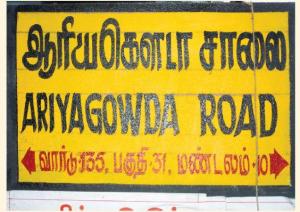









 Mookuthi
Mookuthi  Chinna
Chinna 






 ==
==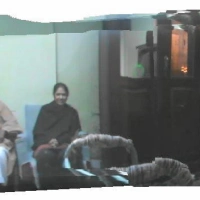
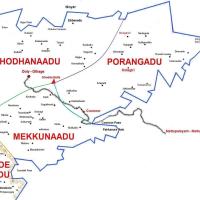

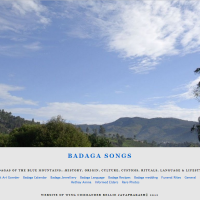
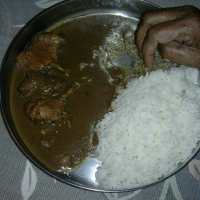
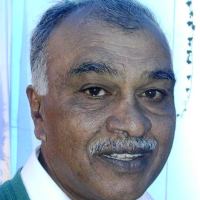
![Seemae [See'may] & Morae [Mo'ray] (relationship)](https://i0.wp.com/badaga.wordpress.com/files/2008/11/nakku-betta1.jpg?resize=200%2C200)









































